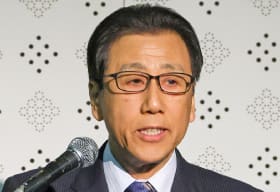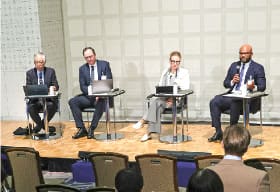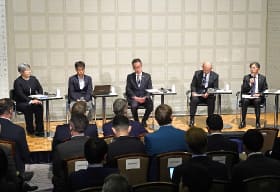Thematic Sessions I
Plaudits from the US Government
“The Global GX/Finance Conference in Sapporo,” lauded then US Ambassador to Japan Rahm Emanuel, “couldn’t come at a more critical time. With every record-breaking weather event or climate-related catastrophe, we are all reminded of the challenges ahead. We have no time to lose in our efforts to expand our clean-energy resources to power our homes, our businesses, and the industries of tomorrow. And thanks to the vision of both the mayor and the governor and Team Sapporo-Hokkaido, Japan’s ambitious and aspiring northern island is already a model for what is possible when tomorrow’s technology, clean energy, and smart investment come together. With its abundance of natural resources and abundance of innovative thinking, Hokkaido is on track to become a global hub for advanced data centers and cutting-edge semiconductor facilities, all powered—you guessed it—by clean energy and financed by a dynamic blend of both public and private initiatives.”
“We all know the stakes,” voiced the then U.S. Senior Advisor to the President for International Climate Policy John Podesta. “Twenty twenty-four is going to be the hottest year ever recorded. The consequences of living on a rapidly warming planet are all around us. . . . Crucially, our common strategy in Japan and the United States is government enabled but private-sector led. Only by working hand in hand with the private sector can we reach the scale of investment we need. . . . The private sector must continue to lead—to make new and bigger investments in a cleaner economy, including in Hokkaido and Sapporo. For example, advanced semiconductor manufacturing and data centers powered by Hokkaido’s renewable energy can create sustainable, secure semiconductor supply chains.”
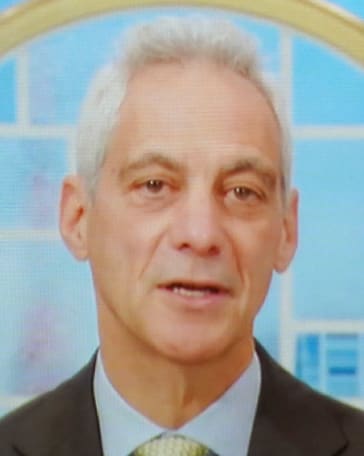
Then US Ambassador to Japan Rahm Emanuel
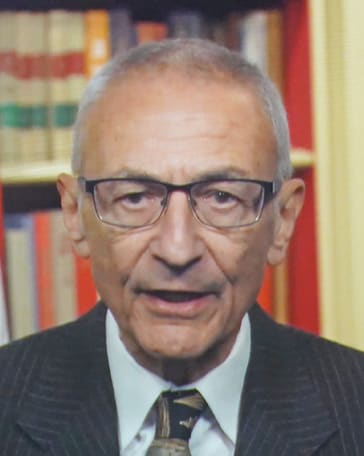
Then US Senior Advisor to the President for International Climate Policy John Podesta
GX through International Cooperation
On hand to share perspectives on the role of international cooperation in GX were former US Special Assistant to the President for Climate Policy and Finance Jahi Wise, Asia Investor Group on Climate Change (AIGCC) CEO Rebecca Mikula-Wright, and US Embassy in Japan Minister Counselor for Economic and Scientific Affairs Evan Felsing. Moderating the session was Nikkei Inc. Visiting Senior Staff Writer Yoichi Takita.
Wise provided a detailed review of U.S. progress in GX under the Biden administration. He concluded with a call for collaboration in addressing the ongoing environmental crisis. “The progress we’ve made reflects not just the determination of our government, but the power of collaboration. Together—with the private sector, global partners, and communities around the world—we can turn this moment of crisis into a moment of great economic opportunity.”
Mikula-Wright discussed the economic impact of climate change and the response of global investors. She concluded with a brief summation of AIGCC's suggestion to continue and increase Japan's competitiveness and attract investors: Move swiftly to expand and integrate renewable energy, establish clear targets for phasing out fossil fuels, and expedite the rollout of carbon pricing at an effective price level.
Felsing reiterated the caution from the then Ambassador and then Senior Advisor that the world is at a crossroads. “Our planet is facing unprecedented challenges, and it’s going to take working together to be able to make a difference. But I am confident that when the United States and Japan work together, we can accomplish great things.” Felsing touched on how Podesta and other US government representatives have shared with Japanese counterparts their experience in implementing GX initiatives.
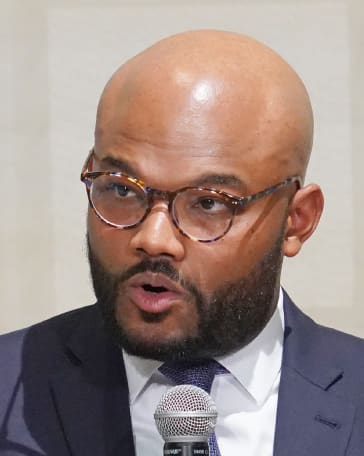
Former US Special Assistant to the President for Climate policy and Finance Jahi Wise
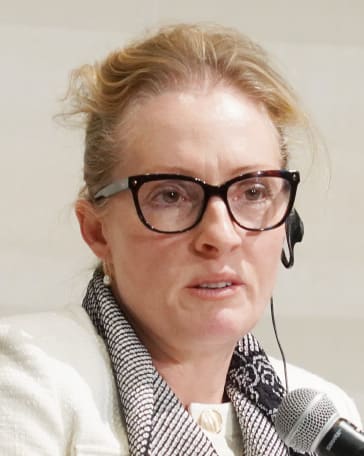
AIGCC CEO Rebecca Mikula-Wright
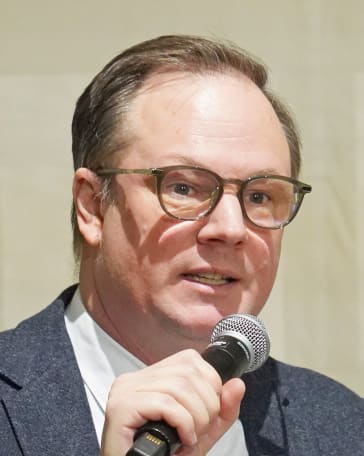
US embassy in Japan Minister Counselor for Economic and Scientific Affairs Evan Felsing
Japan’s Danish Counterpart in Wind Power
Denmark is a global leader in GX through wind power and through other channels, and the Danish embassy in Japan lent proactive support to the preparations for the Global GX/Finance Conference Sapporo. Four Danes took part in a session devoted to opportunities for Danish-Japanese cooperation in wind power: Jarl Frijs-Madsen, the Ambassador of Denmark to Japan; William Lim, the Japan Program Leader at the Danish Energy Agency; Lars Ulrich Jensen, the Associate Director of the Wind Origination Team at the Export and Investment Fund of Denmark (EIFO); and Tom Vile Jensen, a Deputy Director at F&P-Insurance & Pension Denmark (the Danish trade association for insurance companies and pension funds). Moderating the session was Nikkei Inc. Senior Consulting Executive Officer Sonoko Watanabe.
“In 1973, we were importing 90% of our energy as oil,” recalled Frijs-Madsen. “Now, 85% of our electricity is green. More than half of that comes from wind energy. We have managed to reduce our carbon dioxide emissions 48% since 1990 while growing our economy 76%, so these things can work hand in hand.”
“Denmark has partnerships,” commented Lim, “with 25 nations in energy and climate. The issues we typically discuss with partners are the challenges of ensuring affordability, stability, and sustainability in power systems. And those issues are central to our discussions with counterparts in the Japanese government.”
EIFO’s Jensen characterized his employer as a credit agency and explained that EIFO has worked with banks to finance more than 40 gigawatts of wind power capacity worldwide. “Japan,” he added, “is very much on our list of upcoming markets. We are looking into the next round of projects to be auctioned and allocated there.”
“The Danish pension funds have invested $10.5 billion in [renewables in] Japan,” reported F&P’s Jensen. He called for attention in Hokkaido and elsewhere in Japan to the fierce competition for capital in renewables. “Everyone wants to be in renewables, which requires a lot of capital. Meanwhile, higher interest rates enhance the appeal of other investment opportunities.”
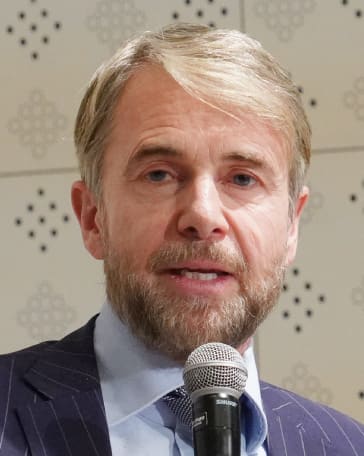
Ambassador of Denmark to Japan Jarl Frijs-Madsen
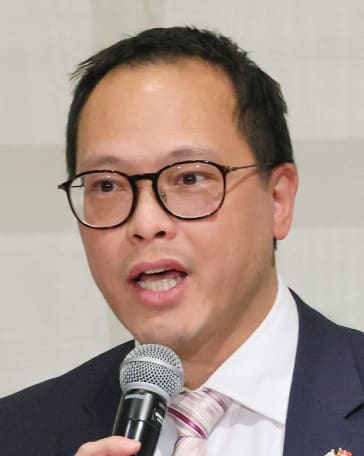
Danish Energy Agency Japan Program Leader William Lim
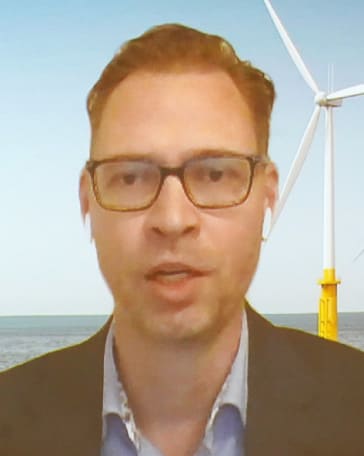
EIFO Wind Origination Team Associate Director Lars Ulrich Jensen

F&P Deputy Director Tom Vile Jensen
The Significance of Positioning Sapporo as a Global Hub of GX Finance
Financial Services Agency Strategy Development Division Director Satoshi Ikeda, Climate Bonds Initiative CEO Sean Kidney, and Connecticut Green Bank Chief Investment Officer Bert Hunter discussed the challenges to overcome in positioning Sapporo as a GX finance hub. Climate Bonds Initiative is an international nonprofit organization devoted to mobilizing global capital for climate action. The Connecticut Green Bank, meanwhile, is the first US bank established expressly to help secure cleaner, less-expensive, and more-reliable sources of energy while creating jobs and supporting local economic development. Moderating the session was GX Acceleration Agency Director Hideki Takada. The Japanese government launched the GX Acceleration Agency in July 2024 to accelerate GX investments through financial support and other activity.
“Asset management,” opened Ikeda, “is a channel for linking Japanese financial assets to the growth dynamism of the world economy and also for connecting global money to investment opportunities in Japan. Our nation has a bank-centric financial system, and in the low-growth environment of late banks are ill-equipped to take on much risk in mobilizing capital. The special zones are for channeling funds to the higher-potential investments typical of new endeavors, such as GX initiatives. That is what we envision for Sapporo.”
“We are in crisis now,” intoned Kidney, “and that requires us to step up. Japan’s GX plan is an example of stepping up. The steps taken to release that plan have been fantastic. We around the world need to be applauding strong action when we see it. Citizens hear a lot of crazy stories, and those of us in positions to do so need to make clear what’s working.”
“Having regional development authorities is important for several reasons,” observed Hunter. “A national authority, unless it has a local presence, is unlikely to have a sufficient grasp of local conditions and local needs. We see some large transactions in GX, as with offshore wind power, but we also have a lot of smaller, onshore transactions. Those require local input and local capital.”
“This panel highlighted enormous opportunities Hokkaido and Sapporo have”, concluded Takada. “To fulfil the opportunities, we need to develop further collaboration of the local authorities, the national government, the private sector and international stakeholders.”
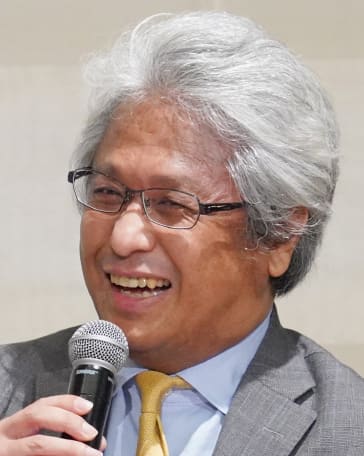
Financial Services Agency Strategy Development Division Director Satoshi Ikeda
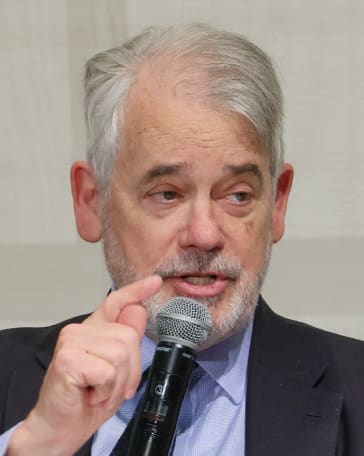
Climate Bonds Initiative CEO Sean Kidney
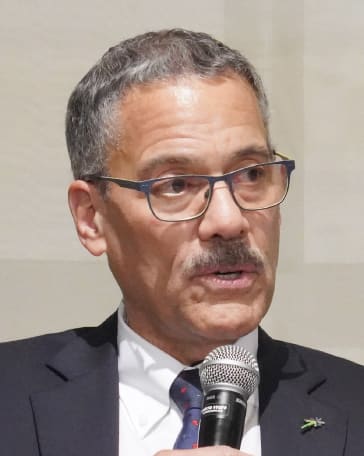
Connecticut Green Bank Chief Investment Officer Bert Hunter
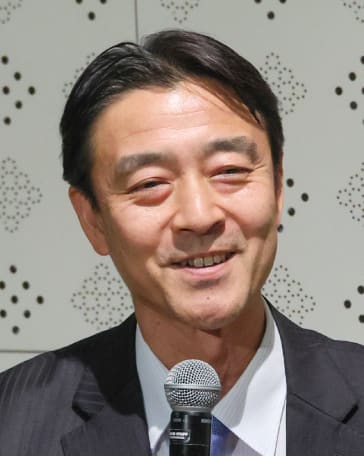
GX Acceleration Agency Director Hideki Takada
